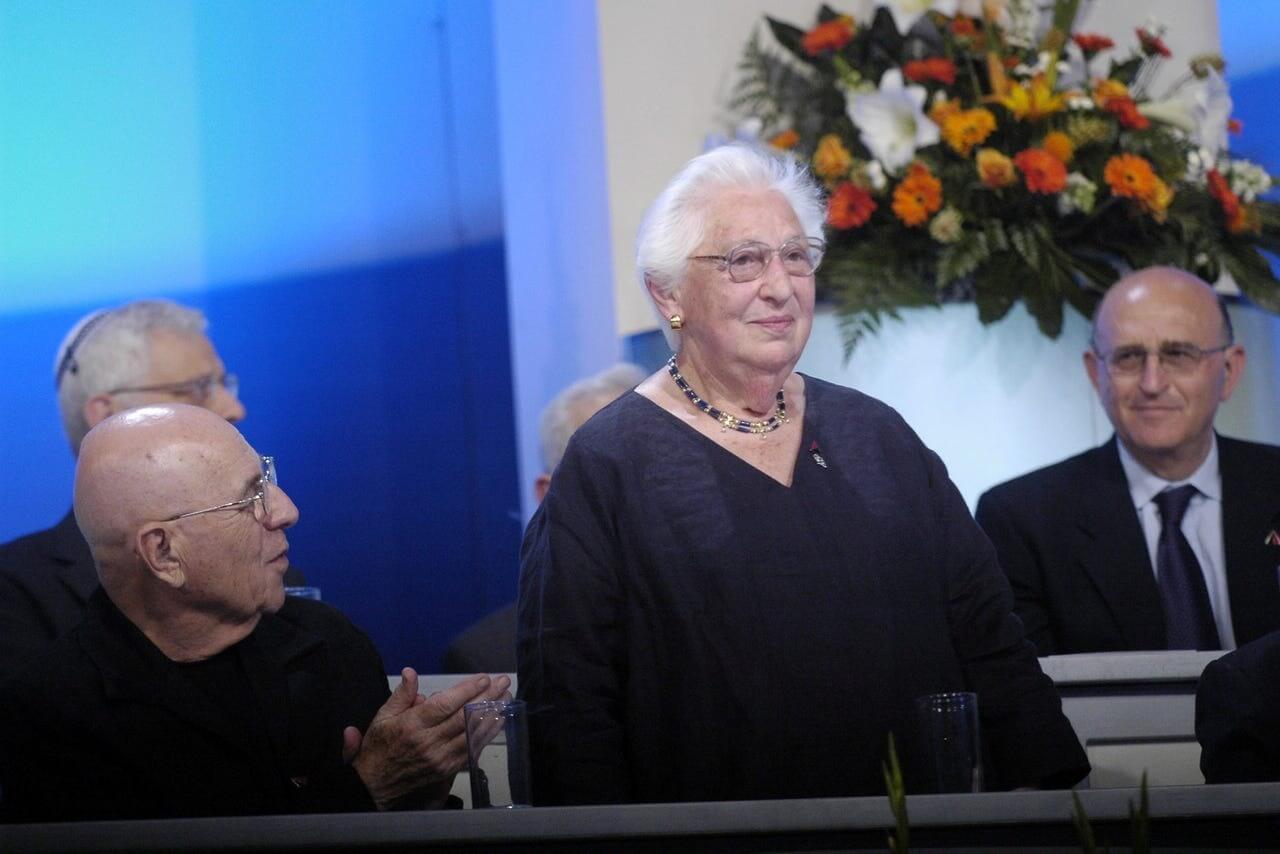Alice Shalvi, trailblazing Israeli feminist and educator, dies at 96
Shalvi founded the Israel Women’s Network and was awarded the Israel Prize for her lifetime of achievement

Graphic by Angelie Zaslavsky
This article originally appeared on Haaretz, and was reprinted here with permission. Sign up here to get Haaretz’s free Daily Brief newsletter delivered to your inbox.
Alice Shalvi, a pioneer of Israel’s feminist movement, died on Monday in Jerusalem, just a few days shy of her 97th birthday.
Professor Shalvi founded Israel Women’s Network, a non-partisan and non-governmental organization for the advancement of gender equality. She was also a founder of the Pelech School, a distinguished experimental religious girls’ school in Jerusalem, and founder of the English literature department at Ben-Gurion University in Beer Sheva.
Born in 1926 in Essen, Germany, under the name Alice Hildegard Margulies, Shalvi grew up in an Orthodox Jewish family that emigrated from Eastern Europe. When she was eight-years-old, the Nazis came to power and the family fled to London. Before making Aliyah to Israel in 1949, Shalvi studied English literature at Cambridge and social work at the London School of Economics.
During her first decade in Jerusalem, Shalvi completed a doctorate in English literature at the Hebrew University and launched her long academic career. She also met her husband, Moshe Shalvi (then Shelkowitz). The couple had six children.
In her memoir “Never a Native” published in 2018 when Shalvi was 92, she reflected on her professional and personal life. “After all these years in Israel, I still think of myself as an immigrant and don’t entirely feel at home,” she told Haaretz’s Judy Maltz in an interview that came out at the time. “Although I was married in this country and bore all my six children here, to this day, I still don’t think in Hebrew.”
In 2007, after decades of fighting for women’s rights, religious pluralism and Israeli-Palestinian peace, Shalvi won the Israel Prize for her lifetime achievement and special contribution to society and the State of Israel. The judges wrote that she “has been a revolutionary for her entire life, a courageous and groundbreaking woman, known for her intellectual integrity and long term vision, who has made a huge impact on education and on women’s rights in Israel.”
Born and raised in an Orthodox family, Shalvi had a complicated relationship with Judaism. She belonged to a Conservative congregation and observed Shabbat and kashrut, but never hid the fact that she found the traditional Jewish prayers hard to digest. “The whole concept of God as male, it’s difficult for me,” she said in the 2018 interview. “There are certain things I keep on doing because that’s what we did at home and that’s what distinguishes me as a Jew – my folklore, if you like – but as far as my conception of God is concerned, it’s changed very radically.”
During the last decades, Shalvi was an outspoken critic of the occupation of Palestinian territories. Her leftist views were also the reason she was forced out of her job as the principal of the Pelech School. “The worst thing that has happened is that we’ve become an occupying country,” she said. “I think that power corrupts and that to have power over another people and denying freedom that you enjoy yourself to others is sinful. What we have is a very ugly occupation.”












